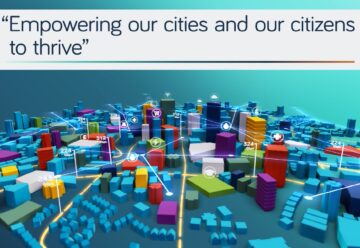As a communications company, our technology reaches into every sector of industry and every walk of life. It also stays with you throughout your life. Take the education sector as an example.
While good old-fashioned textbooks still have a role to play in the classroom, and expert research papers will of course remain important sources of learning in higher education, there is no doubt that the internet now trumps everything and is the most important education tool in the world.
Whether for discovering or documenting knowledge, the internet can provide equal and inclusive access to information. However, the UK’s digital divide means that not all internet access is created equally. In the early learning years – good quality access needs to be more widely available. Higher up the education ladder, higher speeds, greater bandwidth and more data capacity are required.
So, whether we are talking about doctorate research in universities, or interactive teaching in primary schools, the internet is now the key to lifelong learning; and the connectivity we provide is fundamental to its availability and to its efficiency.
At Neos Networks we are deeply involved in projects that reflect that importance of those lifelong connections through education. Take the work we have been doing in Aberdeenshire as an example. Working in partnership with the City and regional councils, the Scottish Government and local health authorities, we have been creating a digital network to provide high quality internet access across the greater Aberdeen region.
In the last two years, we have delivered some 275km of Dark Fibre network, covering five major locations across Aberdeenshire. The project is already delivering fibre connectivity and digital services to more than 192 public sector sites across the region, including its schools, colleges and libraries. Smart city projects like this not only help to improve local services they also help to address the digital divide, creating better shared community internet resources. And, in the case of Aberdeen, Neos Networks has brought high speed internet access within reach of some 44,000 homes.
Of course, while the physical infrastructure is the starting point of any smart city project and its reach into education, in Aberdeen we took the learning aspect a step further. Throughout the two years of the project, we have been delivering careers presentations across the city’s schools and colleges and have also provided work placement opportunities for the city’s college students. What’s more, we have created several full time and foundational apprenticeships.
The idea has been to highlight careers opportunities within the IT sector that might otherwise have been missed and help build a local workforce adept in managing and maintaining the smart city fibre network.
As a company, we also play a key role in the UK’s higher education and research sector. Across these fields, the sheer volume of data being produced or accessed within its institutions, coupled with the requirement for super-fast cloud-based data processing and a growing thirst for UHD video, are combining to drive demand for near limitless network capacity and ever higher speeds.
For these applications, public networks are unlikely to provide the dedication and bandwidth required so private networks come to the fore. In the UK, its universities, colleges and major research establishments rely on the private Janet network provided by Jisc – a membership organisation delivering shared digital infrastructure and services across higher education, further education, research, and the wider public sector
During the last year, we have been working with Jisc on a major upgrade programme across its regional networks. A great example of this is in the North-West of England, where a new Dark Fibre network will come on-stream later this year delivering ten-fold increases in speed and providing connectivity speeds of up to 100Gbps. Large universities in Manchester, Liverpool, and Lancaster, as well as important research facilities such as the Jodrell Bank Observatory, are all connected to Jisc in the North-West.
To get a better understanding of the staggering amount of data involved, it’s worth adding that the Science & Technology Facilities Council has its key laboratory in Daresbury connected to the network. This laboratory is the central facility handling all the investigative data into dark matter arriving in the UK from CERN’s Large Hadron Collider in Switzerland.
Jisc’s Janet network connects the UK via a national backbone and 15 regional infrastructures, and we’ve been working with them to upgrade many of the regional loops. Most recently we have built a new Dark Fibre network for colleges, universities and research institutions in Northern Ireland and have linked that to the national backbone via two separate submarine cables coming ashore in Southport and Glasgow.
Effectively, with a good internet connection you can today access the sum of all human knowledge and information. In education terms it is used to discover, document, advance and share knowledge – whether for first learnings, GSCE studies or PHD research. At Neos Networks – we can be rightly proud that we are providing the vital connections that are helping to facilitate and empower lifelong learning.






